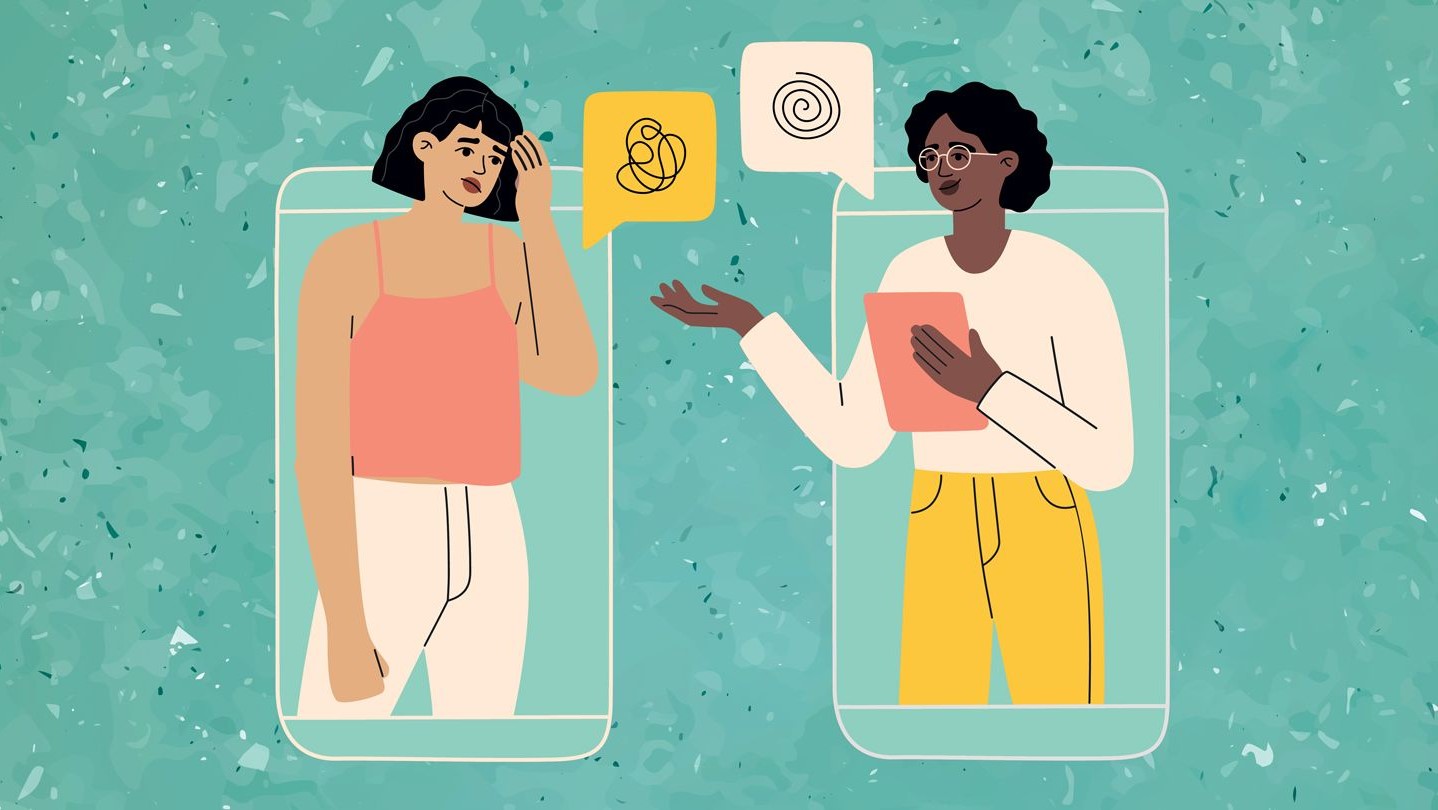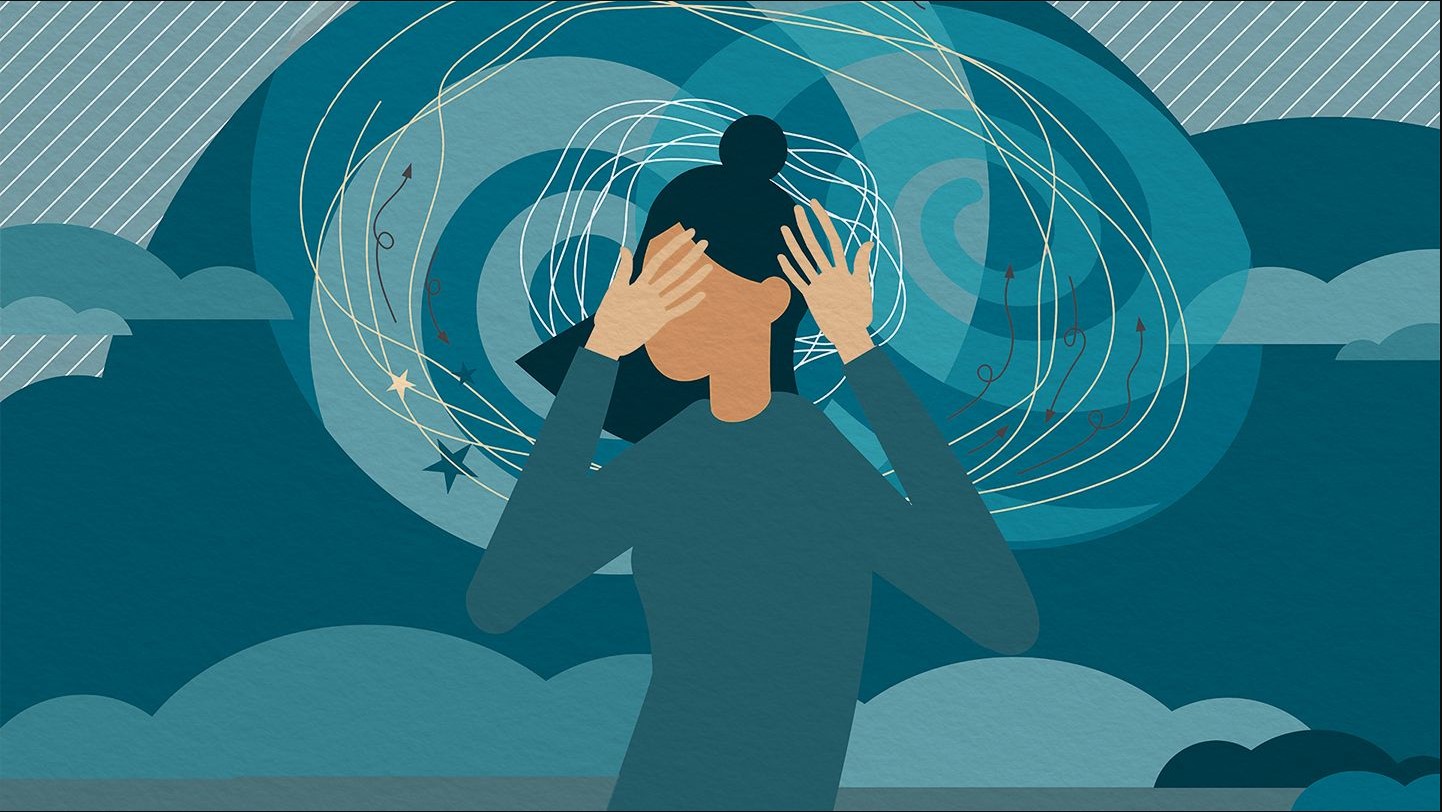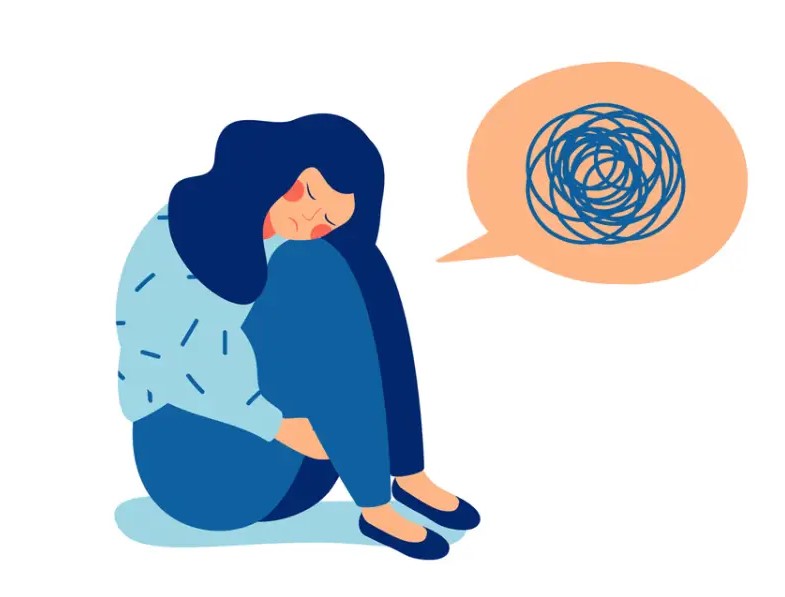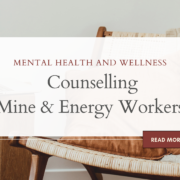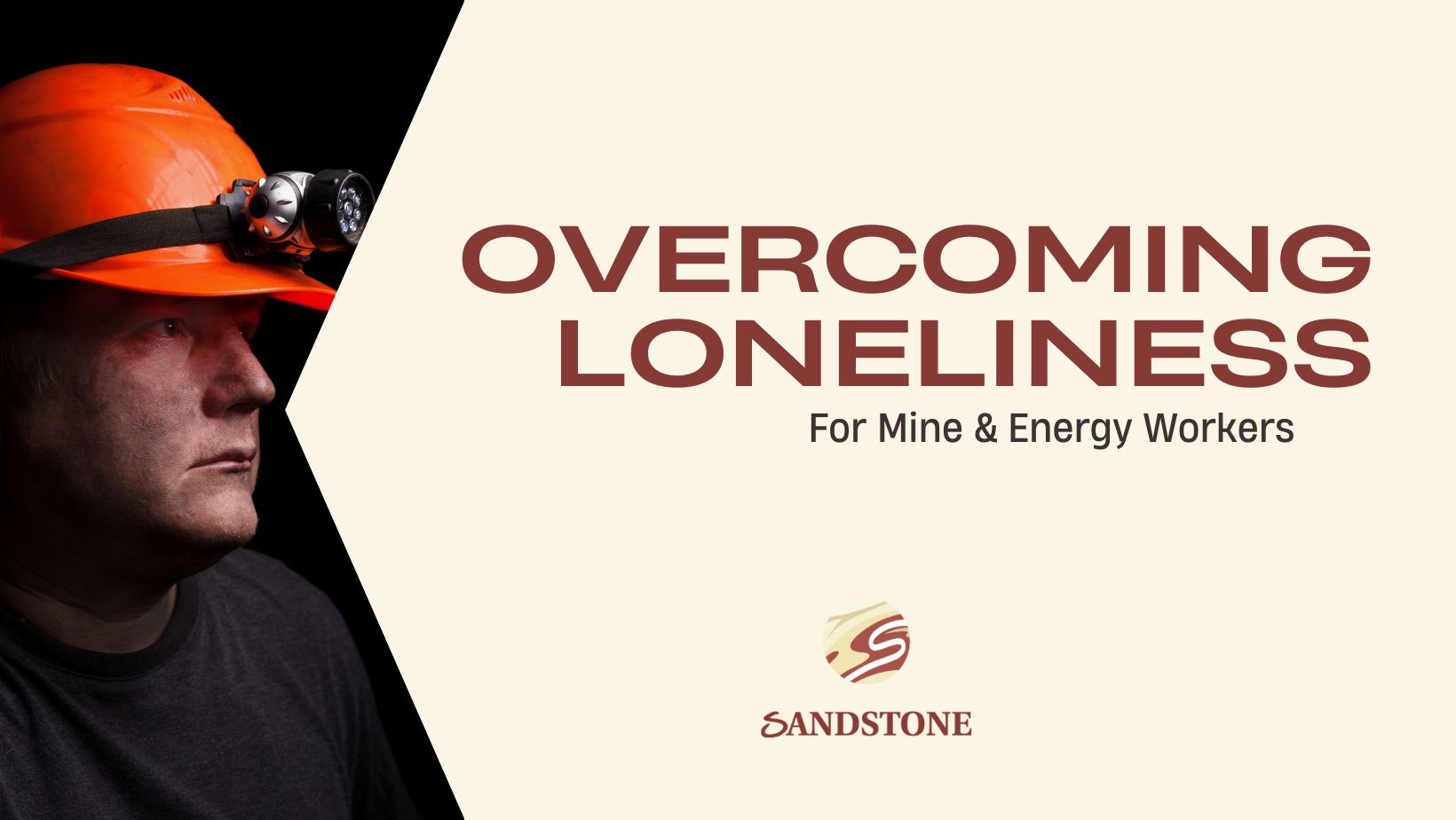Counselling Services for Depression Prince George
Counselling Services for Depression and Individual Therapy Prince George
Signs & Symptoms of Depression Prince George Counselor
Individual Therapy and counselling in Prince George
In the realm of counseling and therapy in Prince George, it’s crucial to distinguish between general sadness and clinical depression. The key differentiator lies in the extent to which an individual’s mood disrupts their daily functioning across multiple facets of life.
Do you find that your emotional state significantly hinders your physical well-being, professional performance, or interpersonal relationships?
Mood disorders encompass a range of conditions, including:
– Clinical depression;
– Unipolar depression;
– Dysthymic disorder;
– Major depressive disorder;
– Seasonal Affective Disorder (SAD).
Seeking professional therapy can offer invaluable insights and strategies to navigate and manage these disorders effectively.
In the therapeutic landscape of Prince George, understanding the intricacies of mood disorders is paramount. Bipolar depression, often referred to as bipolar disorder, is characterized by pronounced mood swings. Initially, an individual may exhibit symptoms akin to depression, which are subsequently succeeded by an elevated mood phase. Professional counseling and therapy can offer essential insights and interventions for managing this complex condition.
At Sandstone Counselling in Prince George, our therapists are seasoned professionals with expertise in addressing a spectrum of mood-related concerns. We employ evidence-based methodologies including cognitive behavioural therapy, mindfulness-based cognitive therapy, solution-focused therapy, and narrative approaches. Reach out to us today, and we will collaborate with you, delving into the specifics of your challenges and formulating a robust strategy for resolution and well-being.
Signs of Depression in Thinking Patterns, individual counseling and Therapy Prince George?
In the realm of counselling and therapy in Prince George, it’s recognized that distorted thinking patterns can be closely associated with depression. These cognitive distortions include:
– Absolutist thinking, often characterized by “all or nothing” perspectives;
– Frequent use of definitive statements like “always,” “never,” “should,” or “must”;
– Overlooking positive aspects of situations, experiences, or self-evaluations;
– Perceiving negative outlooks as the sole truth or more valid than other perspectives;
– Generalizing from a minor negative detail to form an entire negative view;
– Amplifying problems through catastrophizing, minimizing, or magnifying issues, thus adopting an exaggerated perspective;
– Drawing conclusions without sufficient data or through assumptions;
– Excessive feelings of guilt, wrongly attributing external events to oneself or taking undue blame for situations beyond one’s control or influence.
How counselling can help someone with Depression in Prince George ?
Depression Individual Therapy British Columbia
Within the scope of professional counselling and therapy in Prince George, it’s essential to recognize the multifaceted symptoms associated with depression. These manifestations include:
– Sleep irregularities, such as early awakenings without resuming sleep, challenges in initiating sleep, disrupted sleep patterns, and insomnia;
– Altered appetite, encompassing overeating, diminished hunger, undereating, or specific cravings;
– Cognitive distortions influencing perceptions and judgments;
– Elevated levels of irritability;
– Profound feelings of guilt or shame;
– A prevailing sense of pessimism or hopelessness;
– Thoughts or inclinations towards self-harm or suicide;
– Behavioral markers of depression, like increased tearfulness or an unexpected inability to express sadness;
– Diminished concentration and focus;
– A noticeable depletion of energy and vitality;
– Waning interest or pleasure in previously enjoyed activities or hobbies.
Signs & Symptoms of Depression, Counselor Prince George
At our esteemed counselling and therapy in Prince George, we take pride in our team of seasoned, full-time Registered Clinical Counsellors. Committed to professionalism and excellence, our approach is result-driven, aiming for timely and impactful outcomes. Our expert counsellors are proficiently trained in cutting-edge, evidence-based methodologies tailored for addressing clinical depression and associated mood disorders. We harness a unique blend of CBT (Cognitive Behavioural Therapy), Mindfulness, and Yoga Philosophy, harmoniously integrating the strengths of both Eastern and Western therapeutic paradigms.
PTSD Counselling Treatment Therapy Prince George
Post-traumatic stress disorder counseling Prince George, B.C.
Post-traumatic stress disorder PTSD Therapy and counselor Prince George
PTSD Counselling Services, Prince George
Understanding our own reactions can sometimes be a challenge, yet with every challenge lies an opportunity for growth and healing. At Sandstone Counselling Prince George, we specialize in PTSD Therapy, ensuring you’re never alone in navigating the intricate landscape of your emotions. With our expert guidance, we’ll help demystify the connections between past traumas, current circumstances, and future resilience. Through evidence-based clinical interventions, we strive to reframe the way you interpret and respond to life’s adversities. Join us in crafting a bespoke therapeutic journey, designed with your unique needs in mind. Together, we’ll cultivate resilience, fostering a renewed capacity to navigate stress and embrace life’s myriad experiences.
- Intrusive Memories:
- Recurring distressing memories of the traumatic event.
- Flashbacks reliving the trauma.
- Upsetting dreams about the traumatic event.
- Severe emotional or physical reactions to reminders of the event.
- Avoidance Behavior:
- Avoiding places related to the trauma.
- Staying away from activities that might trigger memories.
- Resisting conversations about the traumatic incident.
- Emotional withdrawal from reminders of the event.
- Negative Changes in Thoughts and Mood:
- Persistent, distorted beliefs about oneself or others.
- Ongoing feelings of fear, guilt, or shame.
- Anhedonia (inability to find pleasure in previously enjoyed activities).
- Feeling detached or estranged from others.
- Hyperarousal:
- Constantly feeling on edge or tense.
- Excessive irritability or angry outbursts.
- Difficulty concentrating or staying focused.
- Being easily startled or frightened.
- Nightmares:
- Vivid dreams about the traumatic event.
- Night sweats or waking up in panic.
- Repetitive themes of danger or vulnerability.
- Difficulty returning to sleep after waking.
- Emotional Numbness:
- Feeling disconnected from one’s surroundings.
- Difficulty expressing feelings or emotions.
- Lacking interest in significant activities.
- Feeling a sense of a limited future.
- Dissociative Symptoms:
- Feeling detached from one’s own body or emotions.
- Memory gaps related to traumatic details.
- A sense of the world being “unreal.”
- Feeling disconnected from the present moment.
- Physical Reactions:
- Rapid heart rate when reminded of the trauma.
- Unexplained aches or pains.
- Muscle tension or tremors.
- Experiencing nausea or stomach distress.
Post-traumatic stress disorder Counsellor and PSTD individual counseling Prince George?
In the wake of traumatic events, the human psyche often needs time to process and heal. The onset of PTSD symptoms can vary, manifesting within weeks or sometimes surfacing months after the triggering event. These symptoms can pose challenges in various facets of life, from work and social environments to personal relationships, even influencing day-to-day activities. At our esteemed Counselling Therapy in Prince George, we categorize PTSD symptoms under four key umbrellas: alterations in emotional and physical reactions, shifts in mood and cognition, avoidance tendencies, and the presence of intrusive memories. It’s not uncommon for these symptoms to intensify, especially during stressful periods or when faced with reminders of the trauma. For instance, a combat veteran might be deeply affected by a sudden loud noise, or someone who’s survived an assault could be triggered by related news stories. Yet, it’s crucial to remember that there’s hope and professional support available. Our dedicated counselors in Prince George specialize in PTSD therapy, providing a nurturing environment where individuals can navigate these challenges. If you or someone you know experiences persistent symptoms lasting over a month, or if daily life becomes unmanageable, we are here to assist, guide, and support your journey towards healing and reclaiming control.
How counselling can help someone with PTSD Prince George ?
Post-traumatic stress disorder Therapy British Columbia
Navigating the complexities of post-traumatic stress disorder (PTSD) requires a blend of understanding, clinical expertise, and personalized care. At our Counselling Therapy centre in Prince George, we are dedicated to providing this compassionate and tailored support for individuals grappling with the lingering shadows of traumatic events. Our therapeutic approach delves deep into the emotions and physical manifestations intertwined with the trauma, offering a sanctuary for introspection and healing. By collaborating closely with our clients, we co-create coping strategies specifically designed to meet individual challenges and nurture resilience.
Signs & Symptoms of PTSD, Counselor Prince George
Beyond merely managing symptoms, our counseling sessions aim to empower individuals with tools to discern triggers, cultivate emotional balance, and harness relaxation techniques. We also emphasize the importance of fostering healthy, supportive relationships, reestablishing feelings of safety, and guiding clients towards rediscovering meaning and purpose in their lives. Let our dedicated counselors in Prince George be your allies on this transformative journey toward healing and self-reclamation.
Counselling for Anxiety and Panic Prince George
Counselling and Therapy for Anxiety and Panic Prince George, B.C.
Counselor for Anxiety and Panic Therapy, Prince George
Individual Counselling for Anxiety and Panic, Prince George
Remember, even when we’re at a loss to understand our own reactions, there’s always a way forward. With Sandstone Counselling Prince George by your side, you’re not alone in this journey. We’ll help you connect the dots between past experiences, present situations, and the way you perceive challenges. By understanding and addressing these patterns, together we’ll pave the way for brighter responses to life’s ups and downs. Let’s collaborate on a tailored self-care plan, crafted just for you, and watch as your resilience and ability to handle stress soar to new heights.
- Respiratory Changes:
- Hyperventilation or rapid breathing;
- Feeling short of breath;
- A choking sensation or tightness in the throat.
- Visual Disturbances:
- Tunnel vision or narrowed field of vision;
- Dizziness or lightheadedness;
- Momentary blurred vision.
- Physical Sensations:
- Inability to relax, feeling constantly on edge;
- Nausea or upset stomach;
- Digestive issues, such as diarrhea or cramps;
- Feeling faint or weak.
- Emotional Responses:
- An overwhelming sense of impending doom;
- Intense fear, even when there’s no clear threat;
- Feelings of terror or dread.
- Cardiovascular Symptoms:
- Rapid, pounding heartbeat;
- Chest pain or discomfort (It’s crucial to seek immediate medical attention if these are present to rule out a potential heart attack);
- Palpitations or skipped beats.
- Skin Reactions:
- Sweating, especially in the palms;
- Chills or hot flashes.
- Muscular Symptoms:
- Trembling or shaking;
- Muscle tension or pain.
- Cognitive Effects:
- Disorientation or confusion;
- Feeling detached from yourself or your surroundings (derealization or depersonalization);
- Difficulty focusing or “blanking out.”
How counselling can help someone with anxiety in Prince George?
Anxiety and Panic, often perceived as an amplified stress response, can stem from various sources, be it genetic predispositions, ingrained coping mechanisms, or unresolved traumatic experiences. Every individual’s narrative and reaction pattern is distinct and intricately woven. At Sandstone, our seasoned counselors apply a clinical approach to decipher the nuances of your personal narrative. Collaboratively, we’ll embark on a therapeutic journey, navigating through the layers of stress and anxiety that have impeded your progress. Our goal is to illuminate the path towards emotional well-being and resilience, ensuring you’re equipped to embrace life’s challenges head-on.
How to Reduce Stress Individual Therapy Prince George
Stress and AnxietyTherapy British Columbia
Embarking on the therapeutic path of counselling in Prince George is a commendable commitment to understanding and addressing the intricate dynamics of one’s escalating anxiety and stress. Our clinic offers a comprehensive approach, intertwining educational insights with evidence-based strategies to foster a deeper comprehension of the mechanisms driving your stress response. By harnessing these methodologies, we not only impart concrete techniques to alleviate the immediate stress manifestations but also delve deeper into the root causes. Through this enriched exploration, we assist you in discerning and addressing the underlying concerns and triggers that activate your stress responses. Our ultimate objective is to equip you with the tools, understanding, and resilience to navigate life’s challenges, ensuring you’re well-prepared to confront and manage future stressors with confidence and efficacy.
How individual counselling can help someone in Prince George with Anxiety and Panic ?
Counseling services tailored for energy workers and those stationed far from home address the unique challenges faced by these professionals. Operating in demanding environments, away from familiar support systems, can amplify feelings of stress and anxiety. The physical demands of the job, coupled with the emotional strain of distance, can take a toll on one’s well-being. Our therapeutic services offer strategies to cope in these high-pressure settings, fostering resilience and emotional stability. Therapy provides a safe space to explore feelings, develop coping mechanisms, and harness inner strengths, ensuring workers remain grounded even in the most challenging of circumstances.
Individual Counseling Prince George, B.C.
Individual Counselling Services Prince George, B.C.
Collaborative Counselling and therapy in Prince George
Mental Health Individual Counselling Prince George
At our clinic in Prince George, our esteemed counsellors come with a rich tapestry of experience, equipping them to address a diverse range of concerns. Their seasoned backgrounds ensure that every client is met with expertise and understanding. Should you find that your particular needs fall outside our immediate purview, rest assured, our extensive network often allows us to refer you to a specialist who can provide the specific guidance you seek. It’s our genuine pleasure and commitment to ensure you are directed towards the best possible service tailored just for you. Your well-being is our priority, and we look forward to accompanying you on your journey towards emotional and psychological growth.
- Anxiety & Panic
- Heart palpitations.
- Choking sensations.
- Trembling or shaking.
- Feeling of unreality or detachment.
- Intense fear of losing control or dying.
- Excessive sweating.
- Anxiety & Depression
- Persistent fatigue.
- Excessive worrying.
- Irritability.
- Difficulty concentrating.
- Sleep disturbances.
- Feelings of numbness or hopelessness.
- Crisis Counselling
- Suicidal thoughts.
- Self-harming behaviors.
- Feeling overwhelmed.
- Profound despair.
- Erratic or impulsive behavior.
- Detachment from reality.
- Depression
- Constant feeling of sadness.
- Lack of interest or pleasure in activities.
- Significant weight loss or gain.
- Insomnia or hypersomnia.
- Fatigue or loss of energy.
- Feelings of worthlessness.
- Stress
- Constant irritability.
- Frequent headaches.
- Muscle tension.
- Digestive issues.
- Difficulty relaxing.
- Feeling perpetually pressured.
- Stress Leave From Work
- Burnout or professional exhaustion.
- Feeling overwhelmed by responsibilities.
- Avoidance of the workplace.
- Concentration issues.
- Emotional detachment from work.
- Decreased performance.
- Bereavement, Grief, and Loss
- Deep, persistent sorrow.
- Avoidance of reminders of the lost individual or situation.
- Drastic mood changes.
- Feeling of emptiness or loss.
- Guilt or regrets.
- Difficulty accepting the loss.
- Women’s Health
- Irregular menstrual issues.
- Menopause symptoms such as hot flashes.
- Mood changes related to the menstrual cycle.
- Pelvic pain.
- Libido issues.
- Complications during pregnancy or childbirth.
- Fertility Challenges
- Inability to conceive after a year of regular trying.
- Recurrent miscarriages.
- Unsuccessful fertility treatments.
- Intense emotional reactions related to fertility.
- Feelings of inadequacy or failure.
- Tension or stress in intimate relationships.
- Pregnancy Loss, Miscarriage & Termination
- Intense feelings of grief and loss.
- Guilt, shame, or self-blame.
- Physical and hormonal changes affecting emotions.
- Strain in personal relationships.
- Fear or anxiety about future pregnancies.
- Anxiety, Stress, Depression & Pregnancy
- Overwhelming worry about the baby’s health or motherhood responsibilities.
- Changes in appetite or sleeping patterns.
- Persistent sadness or hopelessness.
- Physical discomfort compounded by emotional distress.
- Fear of childbirth or becoming a parent.
- Treatment of Postpartum Depression
- Prolonged feelings of sadness or emptiness after childbirth.
- Difficulty bonding with the newborn.
- Fatigue, exhaustion, or lack of interest in usual activities.
- Anxiety or panic attacks.
- Thoughts of harming oneself or the baby.
- Anger & Mood Swings
- Sudden outbursts of frustration or irritation.
- Feelings of being easily overwhelmed.
- Regret or guilt following outbursts.
- Strained relationships due to unpredictable emotions.
- Physical symptoms like increased heart rate or sweating during episodes.
- Chronic Pain – Counselling
- Persistent pain lasting months or even years.
- Emotional distress or depression due to constant pain.
- Difficulty in carrying out daily activities.
- Feelings of isolation or hopelessness.
- Struggle with finding effective treatments or therapies.
- Hypnotherapy
- Use of trance-like states to facilitate therapeutic change.
- Addressing deep-seated beliefs or habits.
- Relaxation and stress-reduction techniques.
- Can be used for issues like smoking cessation, weight loss, or phobias.
- Emphasis on the power of suggestion and the unconscious mind.
- Career Counselling
- Exploration of personal strengths, skills, and interests.
- Addressing job-related stress or dissatisfaction.
- Guidance on career transitions or changes.
- Resume, interview preparation, and job-search strategies.
- Setting and achieving professional goals.
Prince George Flexible Scheduling for your Individual Counselling Appointments
Embark on a transformative journey towards a brighter tomorrow. By scheduling your individual counseling session in Prince George this week, you’re taking the first step towards meaningful change. Whether you prefer the intimacy of face-to-face conversations or the convenience of online or telephone sessions, our dedicated therapists are here to accommodate you. With enhanced scheduling flexibility, we are more committed than ever to guiding you on a path of hope and renewal.
Individual Therapy with your counselor in Prince George
Mental Health Therapy British Columbia
Embrace a life renewed with purpose and clarity. At our center, we honor the uniqueness of every individual’s journey, understanding that each path has its own set of challenges. Whether you’re grappling with anxiety, depression, PTSD, burnout, or ADHD, our specialized approach ensures that you’re not alone. Tailored to resonate with your personal narrative, our individual counseling sessions are more than just conversations – they are bridges to healing. Drawing from a vast reservoir of resources and expertise, our counselors stand by you, offering not just professional guidance but also a sanctuary of understanding. Here, every concern is met with compassion and every story is heard. Let’s journey together towards a brighter, more empowered you.
How individual counselling can help someone in Prince George?
In Prince George, individual counselling stands as a beacon of hope and transformation. By providing a safe, confidential space, residents can explore personal challenges with professionals attuned to the unique nuances of the local community. From enhancing self-awareness to equipping individuals with effective coping strategies, counselling in Prince George offers tailored guidance, fostering resilience and improved well-being in the face of life’s complexities.
Counselling Service for anxiety and depression in Prince George
Counseling therapy for anxiety and depression in Prince George
Therapy for Anxiety & Depression in Prince George
Counsellor for Anxiety & Depression in Prince George
“In Prince George, British Columbia, we offer specialized counselling sessions dedicated to the education and management of anxiety and depression symptoms. Recognizing the unique challenges faced by those struggling with these conditions, our sessions are designed to provide individuals with knowledge and tools to navigate and mitigate their symptoms effectively. Through a combination of therapeutic approaches and evidence-based strategies, residents of Prince George can find support and guidance tailored to their specific needs, fostering a journey towards improved mental well-being.”
- Coping with Change:
- Understanding the nature of change and its effects on mental well-being.
- Techniques for embracing change in a positive manner.
- Strategies to minimize anxiety associated with change.
- Sleep:
- Importance of the sleep-wake cycle for mental health.
- Tips for improving sleep quality and consistency.
- Identifying and managing factors that disrupt sleep.
- Self-care:
- Recognizing the importance of self-care for overall well-being.
- Techniques for relaxation and meditation.
- Establishing a daily self-care routine.
- Stress Management:
- Recognizing signs and symptoms of stress.
- Breathing and relaxation techniques to combat stress.
- Strategies to eliminate or minimize daily life stressors.
- Self-hypnosis:
- Introduction to the concept and benefits of self-hypnosis.
- Techniques to induce a state of focused attention and increased suggestibility.
- Practical exercises for self-guided trance states.
- Utilizing self-hypnosis for specific goals like stress reduction or habit change.
- Relaxation:
- Understanding the physiological and psychological benefits of relaxation.
- Techniques such as progressive muscle relaxation and deep breathing exercises.
- Identifying personal triggers of tension and methods to counteract them.
- Thought-stopping:
- The role of intrusive thoughts in anxiety and stress.
- Techniques to recognize and halt negative thought patterns.
- Practical exercises to redirect attention and promote positive thinking.
- Meditation:
- Introduction to various meditation styles, such as mindfulness and transcendental meditation.
- The benefits of meditation for mental clarity and emotional balance.
- Guided sessions to practice meditation techniques and enhance focus.
- Emotional Awareness:
- The importance of recognizing and understanding one’s own emotions.
- Techniques to increase self-awareness and emotional intelligence.
- Exercises to navigate and respond to emotions in a constructive manner.
Prince George Individual Counselling for Anxiety and Depression
We offer a comprehensive range of counseling services in Prince George tailored to individual needs. Our one-on-one sessions are conducted face-to-face, ensuring a deep and direct personal interaction. Each session’s content is meticulously crafted to address the unique needs of the individual. Our counseling approach integrates Mindfulness-Based Cognitive-Behavioral Therapy, Trauma Processing, and Grief Counselling. Additionally, in response to modern challenges and to offer utmost flexibility, we also provide these therapies online, allowing clients to access our services remotely.
Anxiety & Depression therapists in Prince George
Mental Health Therapy
Evaluations and documentation encompass initial intake, ongoing progress, and discharge assessments. These reports maintain clinical precision, presenting clear differential metrics on psychometric evaluations pre and post-intervention. Specifically tailored for insurance claims within short and long-term disability programs, these reports can also be furnished to medical practitioners and utilized for therapeutic progress monitoring. For clients who finance the program out-of-pocket, they frequently opt for direct disclosure of assessment outcomes, circumventing the need for formalized documentation.
How counselling can help someone with anxiety & depression in Prince George?
In Prince George, British Columbia, therapeutic services offer advanced clinical interventions for individuals confronting anxiety and depression. Clinicians provide an impartial and nonjudgmental milieu, facilitating a secure space for clients to introspectively navigate their cognitive and emotional landscapes.
During these therapeutic sessions, clients are equipped with tools to discern and modulate their emotional states, interrogate and rectify maladaptive thought patterns, cultivate adaptive coping strategies, and bolster self-efficacy.
Additionally, these therapeutic engagements enable clients to delve into the foundational etiologies of their anxiety or depression, forging pathways to address and surmount them. The therapeutic environment also furnishes a nurturing and affirmative arena for individuals to unravel challenging scenarios and architect a sustainable blueprint for long-term recuperation.
Isolation & Remote work
Counselling Services for Isolation, Loneliness & Mental Health
Helpful tips for Mine & Energy Workers
Isolation and remote work in Northern Canada can have a significant impact on someone’s mental health due to several factors. Here are a few ways it can affect individuals: 1. Social Isolation: Living and working in remote areas can result in social isolation as there may be limited opportunities for social interactions. Reduced social connections and lack of community support can lead to feelings of loneliness, depression, and anxiety. 2. Limited Access to Mental Health Services: Remote areas in Northern Canada often have limited access to mental health services due to the lack of healthcare facilities and professionals. This can make it challenging for individuals to seek support and treatment for their mental health concerns, further exacerbating their condition. 3. Harsh Environmental Conditions: Northern Canada is known for its harsh weather conditions, long winters, and limited daylight during certain months. These environmental factors can negatively affect one’s mental health by increasing the risk of Seasonal Affective Disorder (SAD), causing low mood, lethargy, and a lack of energy. 4. Work-Life Imbalance: Remote work in Northern Canada may require individuals to work long hours or have irregular schedules. This can lead to a lack of work-life balance, increased stress levels, and feelings of being overwhelmed, which can significantly impact mental well-being. 5. Distance from Support Systems: Being far away from family, friends, and support systems can make it difficult to cope with the challenges of isolation and remote work. Lack of emotional support and the feeling of being disconnected from loved ones can contribute to feelings of sadness, anxiety, and isolation. 6. Substance Abuse: Remote areas with limited social opportunities and psychological support may increase the risk of individuals turning to substance abuse as a coping mechanism. Isolation can intensify feelings of boredom, leading to an increased vulnerability to substance abuse issues. It is important for individuals living and working in remote areas of Northern Canada to prioritize self-care, seek out available mental health resources, maintain social connections, and engage in activities that promote a healthy work-life balance to mitigate the impact of isolation on their mental health.
How to mitigate the impact of Isolation on your Mental Health
Here are some strategies to minimize the impact of isolation on mental health for remote workers: 1. Establish a Routine: Creating a structured daily routine can provide a sense of stability and purpose. It helps maintain a sense of normalcy and reduces the feeling of isolation. 2. Prioritize Self-Care: Engage in activities that promote self-care and mental well-being. This can include exercise, practicing mindfulness or meditation, getting enough sleep, and maintaining a nutritious diet. 3. Stay Connected: Make an effort to maintain social connections, even if you are physically distant. Schedule regular virtual hangouts or video calls with family, friends, and colleagues to combat feelings of loneliness and stay connected. 4. Seek Support: Utilize available mental health resources, such as online therapy or counseling services. Counselling practices such as Sandstone Counselling Centre offer remote access to professionals who can support your mental health needs. It’s important to reach out for help when needed and not hesitate to seek support. 5. Engage in Hobbies and Interests: Explore new hobbies or spend time on activities you enjoy. Engaging in hobbies can provide a sense of purpose, fulfillment, and joy. 6. Find a Supportive Community: Look for online communities or forums where you can connect with other remote workers or individuals facing similar challenges. Sharing experiences and advice can help reduce feelings of isolation and provide support. 7. Take Breaks and Set Boundaries: Avoid burnout by taking regular breaks and setting clear boundaries between work and personal life. Disconnect from work when you are not on duty to maintain a healthy work-life balance. 8. Explore the Outdoors: Take advantage of the natural beauty and outdoor activities available in remote areas. Spending time in nature, taking walks, or engaging in outdoor activities can be beneficial for mental health. 9. Practice Mindfulness and Gratitude: Incorporate mindfulness and gratitude practices into your daily routine. Take a few moments each day to focus on the present moment and express gratitude for the things you appreciate in life. 10. Stay Positive and Practice Self-compassion: Maintain a positive mindset and practice self-compassion. Be kind to yourself, acknowledge your achievements, and focus on your strengths rather than dwelling on limitations or challenges.
How can I book an Online Counselling session with a Registered Clinical Counsellor?
Fill the contact form below
* Internet connection and device(s) are required for secure video counselling
Is Online Counseling Therapy for Me?
Pros & Cons of Online Counselling
Mental Health & Stress Management
Counselling Services for Mental Health & Stress in the Workplace
Helpful tips for Mine & Energy Workers
Energy and mine workers can be affected by stress-related issues in various ways: 1. Physical Health: Stress can lead to physical health problems such as high blood pressure, cardiovascular disease, digestive issues, headaches, and fatigue. Mine workers, in particular, may already be exposed to physical risks and hazards which can be exacerbated by stress. 2. Mental Health: Stress can also have a significant impact on mental health. Mine workers may face high-pressure work environments, long hours, and demanding conditions, leading to conditions such as anxiety, depression, post-traumatic stress disorder (PTSD), and substance abuse. 3. Safety: Stress can impair cognitive function and decision-making abilities, increasing the risk of accidents and injuries in the workplace. Mine workers need to be alert and focused to safely navigate their hazardous work environment. 4. Productivity and Performance: Chronic stress can negatively affect concentration, memory, and problem-solving skills, leading to reduced productivity and job performance. This can have financial implications for both the workers and the company.
How to Mitigate the Impact of Stress at the Workplace
1. Access to Counselling: Providing access to counseling and mental health support services can help workers manage and cope with stress. BC Registered Clinical Counsellors/Psychotherapists are offering confidential services, supportive resources, and referral services for mine workers. 2. Training and Education: Attending Educational seminars and training sessions about stress management techniques, resilience-building strategies, and self-care practices can help them develop coping mechanisms and reduce the negative impact of stress on their well-being. 3. Regular Breaks and Rest: Taking frequent breaks and rest periods can help alleviate fatigue and prevent burnout among mine workers. Rest and recovery are crucial for managing stress and maintaining overall health. 4. Work-Life Balance: Promoting work-life balance can be challenging in industries with demanding schedules, but it is essential for preventing and managing stress. flexible work schedules, taking time off, and participating to recreational activities can contribute to a healthier work-life balance. 5. Communication and Support: Creating a supportive and open work culture where you feel comfortable discussing their stress-related concerns is vital. This can be achieved through regular communication, providing access to counseling services, and fostering a supportive team environment. 6. Health and Safety Measures: Whenever possible participating health and safety measures improvement in the workplace can help reduce stress and minimize physical risks.
Secure Online Counseling Therapy in British Columbia
How can Mine and Energy Workers access Online Counselling in British Columbia and other parts of Canada? To ensure the mental health and well-being of mine workers, there are private online counseling services available in British Columbia (BC) that workers can access. These services provide confidential and convenient mental health support, especially for those who may have limited access to in-person counseling services. Here is how mine workers can access private online counseling services in BC: 1. Research Available Options: Conduct research to identify private online counseling services in BC that cater to the mental health needs of workers. Look for reputable and accredited counseling platforms or individual therapists who offer online counselling services. 2. Check Insurance Coverage: If mine workers have insurance coverage for mental health services, such as an employee benefits package, they can check if online counseling services are covered. Read more It is essential to verify what services are covered, how much coverage is available, and any restrictions or limitations. 3. Referral from Employer: Mine workers can inquire with their employers if they have any partnerships or arrangements with private online counseling services. Some companies may offer counseling services as part of their employee assistance programs or wellness initiatives. 4. Contact the Counseling Service: Reach out to the chosen private online counseling service for more information on how to access their services. They may have specific protocols or registration processes in place. 5. Schedule an Appointment: Once connected with a counselor or therapy platform, mine workers can schedule an online counseling appointment at a time that is convenient for them. Many online counseling services offer flexible scheduling options, including evenings and weekends. 6. Attend Online Counseling Sessions: Attend the scheduled online counseling sessions using the designated platform or software. These sessions can be conducted via video calls, phone calls, or even text-based messaging, depending on the preferences and capabilities of the online counseling service. 7. Follow-up and Support: Maintain regular appointments with the online counselor and actively participate in the counseling process. Depending on the individual’s needs, a counselor may recommend a set number of sessions or provide ongoing support and follow-up. Mine workers must prioritize their mental health and seek professional counseling when needed. Private online counseling services in BC offer convenient and confidential support to ensure the well-being of energy and gas workers.
How can I book an Online Counselling session with a Registered Clinical Counsellor?
Fill the contact form below
* Internet connection and device(s) are required for secure video counselling
Is Online Counseling Therapy for Me?
Pros & Cons of Online Counselling
Counselling Energy & Mine Workers
Wellness & Mental Health
Self-help forTips Fly-in Fly-energy workers
Work-related stress: The energy and mining sectors can involve physically demanding and high-pressure work conditions, which can contribute to stress and anxiety among workers.
Isolation and remote work: Many energy and mine workers are employed in remote locations or on rotational schedules, leading to feelings of isolation and loneliness, which can impact mental well-being.
Safety concerns: Workers in these industries often face safety risks and hazards, which can lead to heightened anxiety and fear for their well-being.
Substance abuse: Workers in high-stress industries may turn to substance abuse as a coping mechanism, leading to addiction and exacerbating mental health issues.
Post-Traumatic Stress Disorder (PTSD): Workers who experience or witness traumatic events, such as accidents or injuries at the worksite, may be at risk of developing PTSD.
Lack of mental health support: Access to mental health resources might be limited in remote work sites, making it difficult for workers to seek help when needed.
Depression and burnout: Long working hours, challenging conditions, and the pressure to meet production targets can contribute to feelings of depression and burnout.
Shift work and disrupted sleep patterns: Irregular work hours and shift work can disrupt natural sleep patterns, leading to sleep-related issues and increased vulnerability to mental health problems.
Energy & Mine Workers Can Face Multiple Mental Health Challenges
Canada’s energy sector is employing hundreds of thousands of individuals. Fly-in Fly Out (FIFO) work has an impact on workers mental health. Remote Camp, Energy and Mine Workers in Canada are working in high-risk industries like mining and energy extraction and can face unique mental health challenges due to the nature of their work environment and job demands. A recent Research Conducted by the University of Alberta and CISM for Communities is available for more information on the topic. Read More From the given information, distance and time away from home/family are the most stressful aspects of FIFO (fly-in fly-out) conditions for workers in the energy sector. 87% of participants in a study reported some (43%) or a lot (44%) of stress related to the distance. Establishing and maintaining relationships with family, feelings of loneliness, and the inability to be present for family events or emergencies are significant stressors for FIFO workers. Camp living is another significant stressor, with 77% of participants reporting some (46%) or a lot (31%) of stress stemming from camp living conditions. Isolation, a feeling of “entrapment,” poor morale, limited or unhealthy food options, and difficulty maintaining healthy habits were reported as key stressors in camp. Two-thirds (69%) of workers reported stress related to travel/commuting, citing unpredictable conditions, long and tiring journeys, and associated costs as contributors. Travel was reportedly more stressful for workers living outside of Alberta, on night shifts, and on shorter rotational schedules (1-3 days off). Despite the challenges, two-thirds (66%) of respondents felt they were able to balance the demands of work and personal life. However, this balance was lower among those with longer work experience in the oil sands, those with short rotational schedules, and supervisors. Workers on short-off rotations and supervisors reported being in contact with family and friends less frequently while in camp. Transitioning between work and home was identified as an important aspect of FIFO work-life balance and well-being. Participants who found it difficult to transition home cited fatigue and role transition as key challenges. Similarly, about one-third of participants found the transition back to work to be difficult, which was more common among those in more unpredictable circumstances, such as working on and off and at multiple sites. The effects of specific events, such as the COVID-19 pandemic and the economic downturn, were also mentioned by interviewees. Workers reported disrupted travel, prolonged stays, variable compliance with safety protocols in camps, concerns about high contact among mobile workers, and fears of further layoffs. Three-quarters of survey participants indicated being affected by layoffs, intensified demands, and constant uncertainty. Overall, this summary highlights the significant stressors experienced by FIFO workers in the energy sector, including distance from home/family, camp living conditions, travel/commuting, work-life balance, and the impact of external events on mental well-being.
Isolation & Loneliness Counselling
Isolation & Loneliness Counselling
Overcoming Loneliness & Isolation
Yes, loneliness and isolation can have a significant effect on mental health. Loneliness has been linked to an increased risk of depression, anxiety, low self–esteem, and even suicide. People who are isolated or lonely often experience a range of negative emotions, ranging from sadness to anger to hopelessness. They may also experience physical symptoms as a result of their feelings, such as fatigue, difficulty sleeping, and increased sensitivity to pain. Moreover, prolonged isolation has been linked to an increased risk of developing dementia. Thus, it is important for people who experience loneliness and isolation to seek help from a mental health professional so that they can receive the support and resources necessary for improving their mental well-being.
Tips to overcome loneliness & isolation?
1. Seek out social interaction: Make an effort to engage in social activities, such as joining a club or taking a class. You could also reach out to friends and family or try joining an online community. 2. Connect with others: Connect with people that you trust and can relate to, people who offer understanding and support. Take the time to call, visit, or write letters to family and friends, or join a support group. 3. Foster relationships: Foster relationships with your colleagues and neighbors, volunteer in your local community, and develop a network of social contacts who can provide emotional support. 4. Get active: Participate in activities that make you feel good, such as going for a walk, practicing yoga or meditation, listening to music, gardening, or painting. 5. Take care of yourself: Make sure you‘re taking care of your physical, mental, and emotional health by eating well, exercising regularly, and setting aside time to relax. 6. Reach out for help: If you‘re feeling lonely or isolated, it can be helpful to seek professional help from a therapist or counselor who can help you work through your feelings.
Can counselling therapy help someone to overcome loneliness and isolation?
Yes, counselling therapy can help someone to overcome loneliness and isolation.
Counselling provides the tools and support needed to address the underlying causes of the individual’s feelings of loneliness and isolation.
Through careful exploration and discussion of the situation, counsellors can help the individual to identify any negative thought patterns that may contribute to their loneliness or lack of connection.
Together, the individual and the counsellor can work to create an action plan for overcoming these feelings.
Counselling also helps to build self–esteem and create a sense of hope, which can help to reduce feelings of loneliness and isolation.
Traumatic Workplace Event & Violence
Traumatic Workplace Event & Violence Counselling
Prevention & Treatment
Starts with Understanding
A workplace traumatic event is a traumatic incident that occurs in the workplace, such as a workplace shooting, an act of violence, an accident, or a natural disaster. These events can have a significant emotional and psychological impact on those affected, often leading to feelings of fear, anxiety, and trauma.
Workplace Traumatic Events can also be defined as:
Bullying at the workplace is any type of abusive, intimidating, or aggressive behavior that is directed at an individual or group of people, with the intention of creating an environment of fear, discomfort, humiliation, or distress. It can take the form of verbal abuse, threats, physical intimidation, exclusion, or sabotage, and can have a significant impact on an individual‘s mental and physical health.
Harassment at the workplace is any kind of behavior that is unwelcome, offensive, intimidating, or hostile and is based on a person‘s sex, race, age, national origin, disabilities, sexual orientation, or other protected characteristics. Examples of harassment can include unwanted sexual advances, derogatory comments or jokes, intimidating or offensive behavior, or other types of verbal or physical behavior.
Oppression at the workplace is any form of discrimination, abuse, or harassment that is based on a person’s race, gender, sexual orientation, national origin, religion, age, disability, or any other protected characteristic defined by federal, state, or local law. This can include unequal access to job opportunities, promotions, pay, or other benefits; bullying or intimidating behavior; and/or hostile work environments.
Discrimination in the workplace is any type of unfair treatment of an individual or group of individuals based on gender, race, age, sexual orientation, disability, religion, or any other protected trait. This can include denying someone a job, paying them less than their counterparts, or creating a hostile work environment.
Gaslighting in the workplace is a form of psychological manipulation in which an individual or group covertly sows seeds of doubt in a targeted employee, making them question their own memory, perception, or judgment. It is an insidious form of emotional abuse in which false information is presented with the intent of making someone question their own perceptions, memories, and sanity.
Misleading in the workplace can include making false promises, providing inaccurate information, withholding important information, and exaggerating facts. It can also include lying, manipulating, or deceiving an employee or coworker.
A Veiled Threat in the workplace is when an employer or coworker makes a veiled threat of potential consequences if an employee does not comply with specific requests. These could include threats of being fired, demotion, or other negative consequences.
What are the stats surrounding Workplace Violence in Canada and US?
Statistics surrounding workplace violence in Canada and the United States vary. In Canada, the latest statistics from 2019 show that there were over 2,000 workplace violence incidents reported.
In the US, the Bureau of Labor Statistics reported that there were over 2.8 million instances of nonfatal workplace violence reported in 2019.
The same report also revealed that almost half of the incidents in the US involved the use of a weapon, while the majority of incidents in Canada did not.
Impact of Workplace Violence on someone’s life
Workplace Violence or Traumatic Event Prevention
To prevent becoming a victim of workplace violence or a traumatic event, it is important to remain aware of your environment and to trust your instincts.
If something doesn’t feel right, it is important to take action and remove yourself from the situation. It is also important to maintain good communication with coworkers and management.
Additionally, it is important to have safety protocols in place and to be familiar with them.
Treating Someone Exposed Traumatic Events at the Workplace
Treating someone exposed to traumatic events at the workplace involves providing psychological first aid. This includes providing emotional support, providing physical care, providing practical assistance, and helping the person build a sense of safety, security, and control. Additionally, it is important to provide referrals to mental health professionals and support services as needed.


